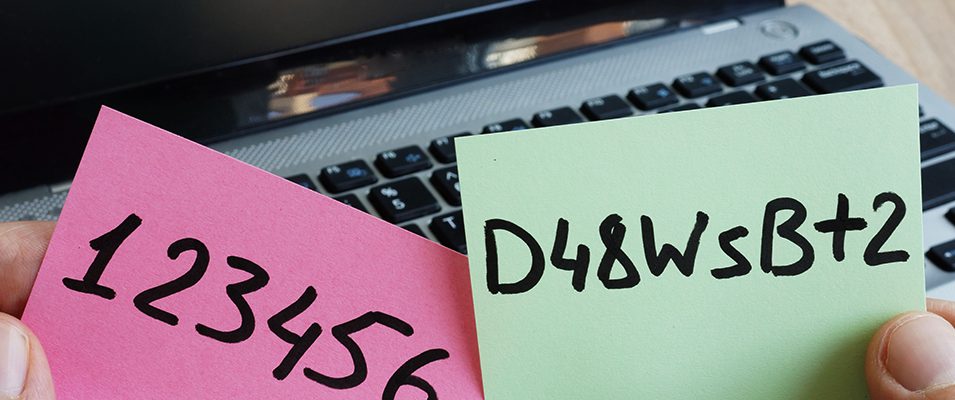
02 Mar The Importance of Creating & Using Strong Passwords
The Ultimate Guide to Creating Strong Passwords
Introduction
Now that online banking and digital financial transactions are part of everyday life, the security of your personal information is paramount. Everything we do now requires a digital account or profile, and each needs a secure password to keep your information safe. Sunwest Bank understands the importance of safeguarding your data and is committed to helping you protect your accounts. Creating strong, unique passwords is one of the most effective ways to ensure your information remains secure. This guide will provide comprehensive tips and strategies to develop robust passwords, enhancing online security and peace of mind.
Why Strong Passwords Matter
Strong passwords are the first defense against unauthorized access to your accounts or handful of devices. They act as digital keys, protecting sensitive information such as your bank account details, social media accounts, and personal emails. Cybercriminals can easily crack a weak password, leading to data breaches, identity theft, and financial loss. Therefore, creating strong passwords is not just a recommendation; it’s a necessity.
Strong Password Tips
Use a Minimum of 12 Characters
The length of your password significantly impacts its strength. At Sunwest Bank, we recommend using passwords at least 12 characters long. Longer passwords are harder to crack because they offer more combinations for potential hackers to decipher.
Mix Uppercase and Lowercase Letters
Incorporate both uppercase and lowercase letters in your password. This variation adds complexity, making it more challenging for attackers to guess your password through brute force.
Include Numbers and Special Characters
Adding numbers and special characters (such as @, #, $, %, & etc.) increases the complexity of your password. This mix of characters ensures that your password isn’t easily predictable or susceptible to common hacking techniques.
Avoid Common Words and Personal Information
Avoid using common words or phrases that can be found in the dictionary. Also, avoid using personal information such as your name, birth date, or pet’s name. Cybercriminals often use these details to crack passwords through social engineering, or the art of manipulating people’s behavior to gain access to information specifically through human error or unawareness.
Use Passphrases
A passphrase is a sequence of random words or sentences that is easy for you to remember but hard for others to guess. For example, “SunwestIsTheBest@2024!” is a strong passphrase that includes upper and lowercase letters, numbers, and special characters.
Creative Methods to Strengthen Your Passwords
Method 1: Use a Password Manager
Managing and memorizing multiple passwords can be daunting. A password manager, such as LastPass, can securely store and generate complex, strong passwords for all your online accounts. This tool helps you avoid using one password, enhancing your overall security.
Method 2: Substitute Letters with Numbers and Symbols
Get creative by replacing certain letters with numbers or symbols. For instance, you can turn “password” into “P@ssw0rd!” This technique adds an extra layer of password security.
Method 3: Combine Unrelated Words
Combine unrelated words to form a nonsensical but memorable password. For example, “Guitar$Sunshine#78” is a strong password because it combines different elements in an unpredictable manner.
Method 4: Use a Combination of Methods
For the ultimate strong password, combine all the methods mentioned above. Create a passphrase, substitute letters with numbers and symbols, and ensure it’s stored securely in a password manager.
Checking the Strength of Your Password
It’s essential to verify the strength of your password. Many online tools and websites offer password-strength checkers. These tools evaluate the complexity of your password and suggest improvements if needed. At Sunwest Bank, we encourage you to use reputable password checkers to ensure your passwords are as secure as possible.
Examples of Good and Bad Passwords
Examples of Good Passwords
- S@fe&Secure2024!
- Length: 14 characters
- Mix of uppercase, lowercase, numbers, and special characters
- Not based on personal information or common words
- Guitar$Sunshine#78
- Length: 17 characters
- Combination of unrelated words with special characters and numbers
- Hard to guess but easy to remember
- P@ssw0rd$W1z@rd!
- Length: 16 characters
- Uses substitutions and special characters
- Complex and unique password
- B3@con_Of_L!ght
- Length: 15 characters
- Mix of uppercase, lowercase, numbers, and special characters
- A memorable passphrase with substitutions
Examples of Weak Passwords
- password123
- Length: 11 characters
- Common word with a simple numerical sequence
- Easily guessable and weak
- qwerty
- Length: 6 characters
- Keyboard pattern
- Very weak and easily crackable
- johnsmith
- Length: 9 characters
- Personal information
- Easy to guess through social engineering
- abc123
- Length: 6 characters
- Simple sequence of letters and numbers
- Very weak and easily crackable
Tips for Securing Your Passwords
Never Reuse Passwords
Using the same password for multiple accounts increases the risk of a security breach. If one account is compromised, all other accounts with the same password are at risk. Always use unique passwords for different accounts.
Change Passwords Regularly
Regularly updating your passwords adds an extra layer of security. Remember to change your passwords every few months, especially for critical accounts like online banking.
Enable Multifactor Authentication
Multifactor authentication (MFA) adds an additional verification step when logging into all your accounts. This could be a text message code, email confirmation, or a biometric scan. MFA significantly reduces the likelihood of unauthorized access, even if your password is compromised.
Avoid Sharing Your Passwords
Never share your passwords with anyone. Even trusted individuals can accidentally expose your password to potential threats. Keep your passwords confidential and secure.
Be Cautious with Password Storage
While writing down your passwords or storing them in an unprotected digital file might be tempting, these methods are risky. If you must store your passwords, use a reputable password manager that encrypts your data.
Keep Your Information Secure With a Strong Password
Creating and maintaining strong passwords is critical to any personal online security strategy. At Sunwest Bank, we prioritize your security and provide the tools and knowledge you need to protect your accounts. By following these tips and utilizing the recommended methods, you can ensure your passwords are robust and secure, safeguarding your sensitive information from online threats.




